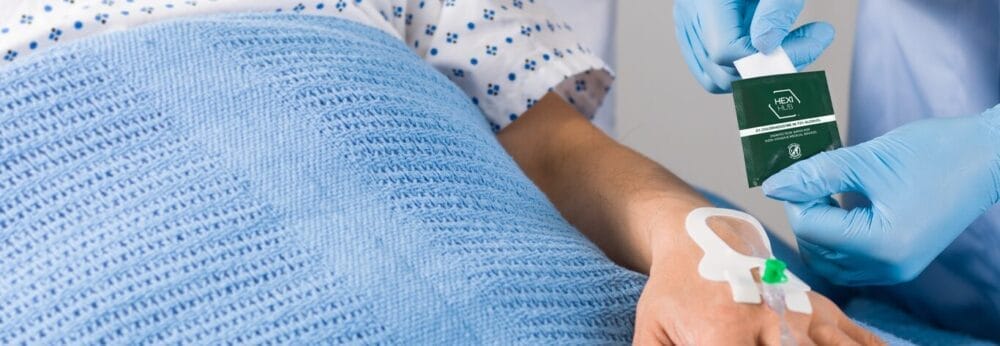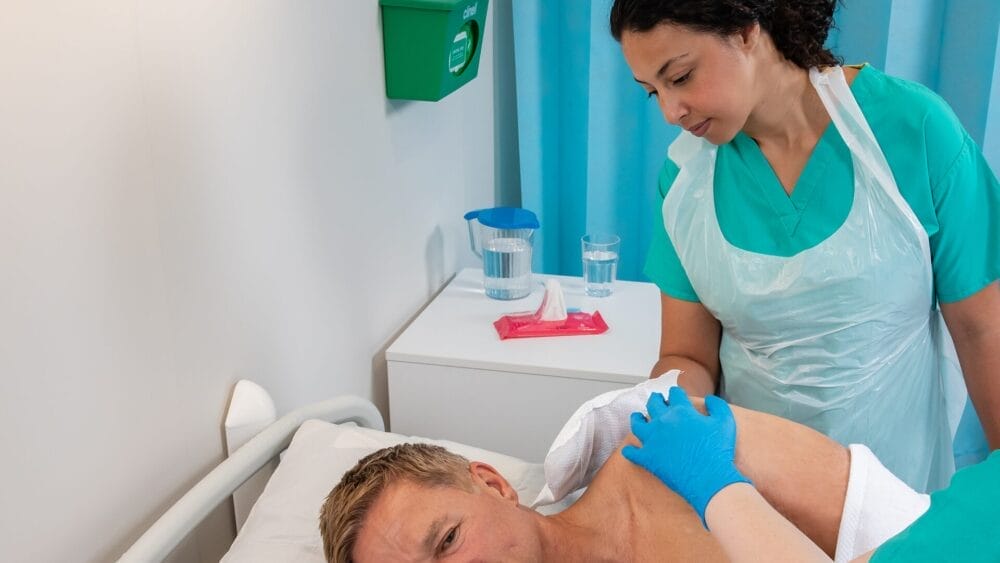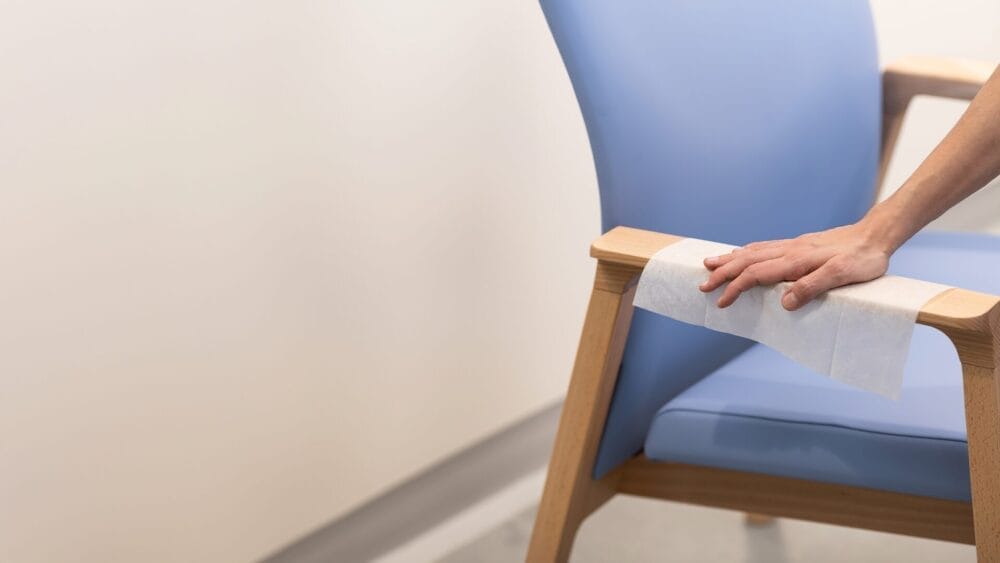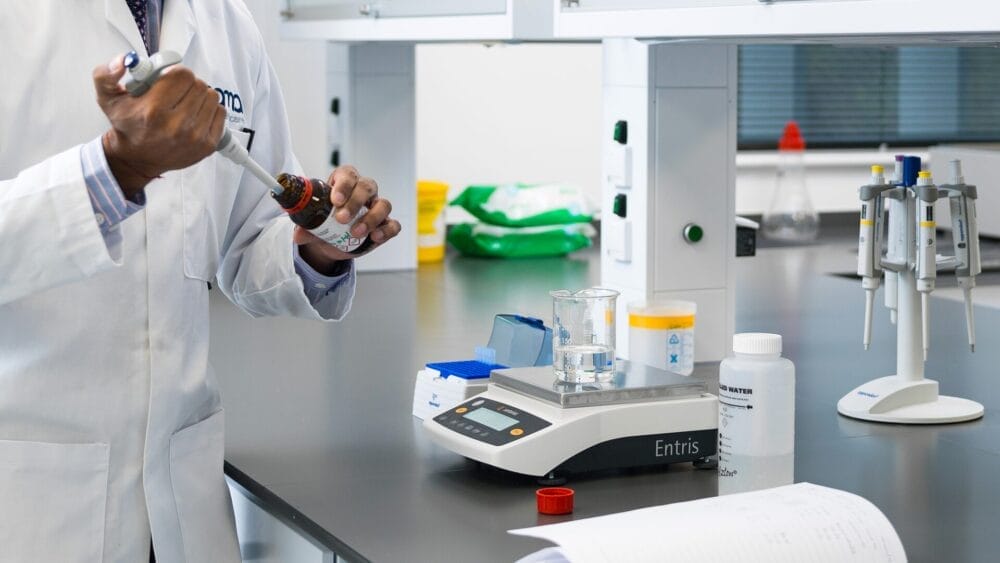Posted
6th June 2023
Products
In this week’s article, we discuss the newly developed UK guidance for air filtration in the NHS.
Why ventilation is important
Ventilation is an important component in infection prevention and control (IPC), specifically in the management of airborne infection. Emphasised as a key line of defence for environmental decontamination within the clinical space, demand for new innovative solutions to safeguard staff, patients and visitors continues to grow.
What is ventilation?
Put simply, ventilation is a process which moves outdoor air into a room or building, diluting pollutants or contaminants from it such as dust, allergens, and microorganisms. Ventilation from an IPC perspective has always played a role in good IPC practice as infectious microorganisms such as viruses and bacteria are expelled into the air from an infectious person coughing, talking and even breathing. Good ventilation can dilute the number of microorganisms in the air, lowering the risk of transmission to others.
Summary of the new guidelines for air filtration
The newly developed guidelines cover the important features to consider when choosing an environmental air filtration solution:
HEPA filters: It is recommended that High-Efficiency Particulate Air Filters (HEPA) that meet BS EN 1822-1SO 29463-1 standards are used, with an efficiency of 99.95% or 99.995%. Efficiency is also dependent on the design of the device and the size of the room. Devices which have a lower grade filter and are not able to filter smaller microorganisms such as viruses are not recommended in settings with vulnerable patients.
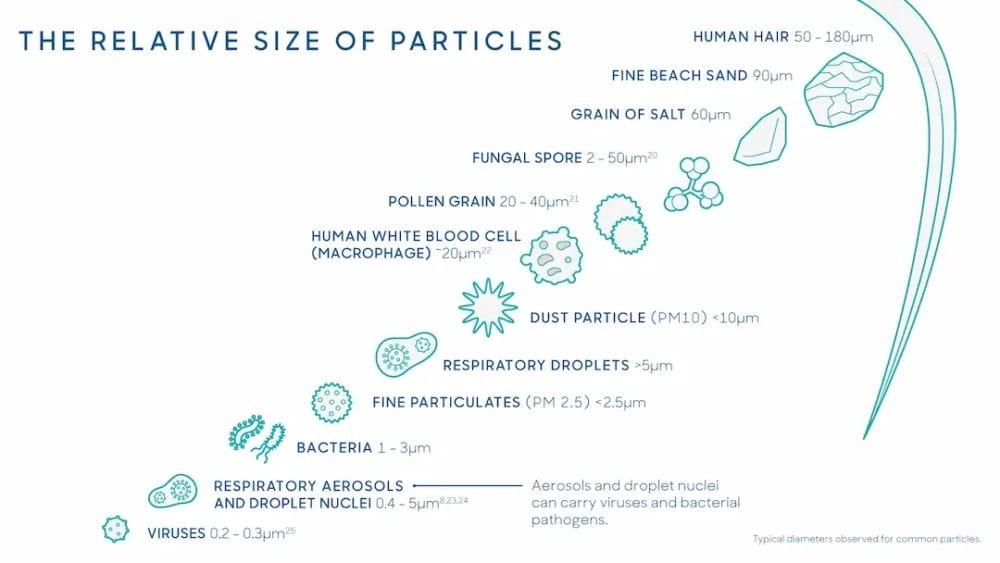
Competent persons & training: In areas where HEPA filter-based air cleaning devices are needed or recommended, clinical and nursing staff should be trained in the management, maintenance, and safe use of the device. This training is often delivered by the manufacturer or supplier and should consider the risk assessment and safety specifications required for the patient groups within the clinical setting.
Performance validation: Besides the recommendations surrounding the filter type and performance, other features such as filter life and noise levels should be considered. In most healthcare environments devices selected should last around 12 months minimum, however, devices in clinical environments which are frequently contaminated or at higher humidity should be replaced more often.
Regulatory and standards compliance: These recommendations are to ensure products are fit for the market they are being sold in. For portable air ventilators, IEC 60601 are a series of technical standards ensuring that medical electrical equipment is safe to use in the clinical space. CE and UKCA marking is essential for selling products in the UK and indicates that the product meets the legal requirements for sales in the EU and Great Britain (England, Scotland, and Wales).
The impact of air filtration
We are starting to see research published around the impact of air filtration, specifically on certain microorganisms. A crossover study in two COVID surge units conducted at Cambridge Hospital introduced air sampling units and portable HEPA filters. When the portable HEPA filters were introduced, SARS-CoV-2 was eliminated from the air, and when the HEPA filters were removed, SARS-CoV-2 was once again detected in the air.
More evidence is required to demonstrate the benefits of air filtration in reducing the risk of transmission of infectious microorganisms, but the importance of good ventilation is widely recognised and a topic that applies not only to healthcare facilities but also offices and schools.
Rediair, our latest innovation in ventilation, is an instant air purification device utilising dual HEPA 14 and carbon filters which capture 10x the particles of a domestic HEPA 13 filter. Adaptable to any situation, Rediair has four different operating modes that begin to decontaminate the surrounding air within seconds, filtering out potential infectious microorganisms. Despite its small form factor, Rediair has an exceptionally high clean air delivery rate (CADR) of up to 600m3/h. While trapping particles and odours, Rediair was designed to capture airborne pathogens such as bacteria, fungi, and viral aerosols.
To find out how GAMA can support your Trust, please email info@gamahealthcare.com to arrange an onsite air ventilation assessment, consisting of:
1) Measurement of ambient room CO2 concentration levels
2) Measurement of room particle concentration levels
If any issues are identified, we can assist in determining the optimum number of air purifying units required to address your ventilation concerns.
You can also request a site visit by our Clinical Director, Gary Thirkell, to help assess areas where mobile air filtration may help. Having been part of Leeds Teaching Hospitals NHS Trust for 7 years, working in a novel post employed by estates and facilities as their IPC Nurse, Gary is aware of the challenges you face and can offer valuable, constructive advice.

SHARE THIS ARTICLE
Tags
Latest News
Introducing HEXI HUB: A seamless transition in our product line
We’re pleased to announce an update to our product offering…
Innovative solutions for tackling Carbapenemase-producing Enterobacteriaceae (CPE) at King’s College Hospitals
King’s College Hospital NHS Foundation Trust, one of London’s largest…
Gloves Off: reducing unnecessary plastic waste during environmental cleaning and disinfection
In this blog, Dr Phil Norville discusses the momentum-gaining ‘Gloves…
Gloves Off: Navigating SDS sheets and skin safety claims in environmental decontamination products
In this blog, James Clarke (Head of R&D, Science &…

